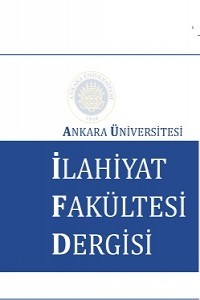Yeʾcūc ve Meʾcūc Kelimelerinin Etimolojisine Dair
The words Yaʾjūj and Maʾjūj/Gog and Magog appear in the Qur’an, Hebrew Bible and the New Testament. Although this group is generally understood to be a single structure in the Islamic tradition, it is clear that the roles of Yaʾjūj and Maʾjūj/Gog and Magog are different. When we look at the form of the words Yaʾjūj/Gog, we see that they are in active form while the words Maʾjūj/Gog are in passive form. Hence Gog, as clearly stated in the Book of Hezekiel, should be commander and leader, and corollary Maʾjūj/Gog must be understood as the soldiers under the command of Gog. Again, considering the fire related meanings in their etymology, Yaʾjūj and Maʾjūj/Gog and Magog can be evaluated as representatives of Satan.
On The Etymology of the Words Yaʾjūj and Maʾjūj
The words Yaʾjūj and Maʾjūj/Gog and Magog appear in the Qur’an, Hebrew Bible and the New Testament. Although this group is generally understood to be a single structure in the Islamic tradition, it is clear that the roles of Yaʾjūj and Maʾjūj/Gog and Magog are different. When we look at the form of the words Yaʾjūj/Gog, we see that they are in active form while the words Maʾjūj/Gog are in passive form. Hence Gog, as clearly stated in the Book of Hezekiel, should be commander and leader, and corollary Maʾjūj/Gog must be understood as the soldiers under the command of Gog. Again, considering the fire related meanings in their etymology, Yaʾjūj and Maʾjūj/Gog and Magog can be evaluated as representatives of Satan.
___
- İlyas Çelebi. “Ye’cûc ve Me’cûc,” Türkiye Diyanet Vakfı İslâm Ansiklopedisi, c.43, ss.373-375.
- ISSN: 1301-0522
- Yayın Aralığı: Yılda 2 Sayı
- Başlangıç: 1952
- Yayıncı: ANKARA ÜNİVERSİTESİ > İLAHİYAT FAKÜLTESİ
